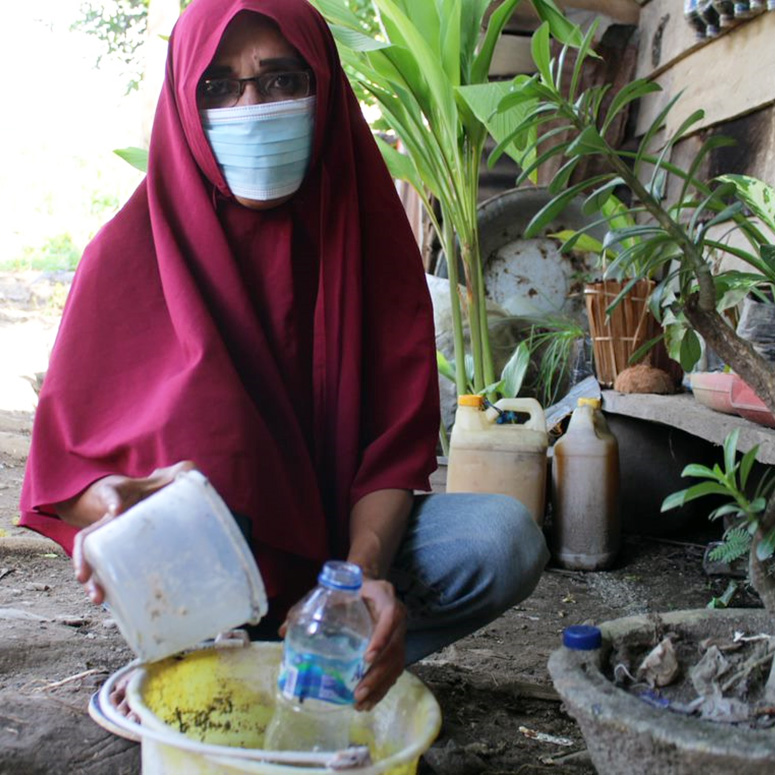Stories of Change

Juharni also grows some vegetables at her home for her family to eat.
Working together to mitigate the toll of climate change in Indonesia
Most families in North Pakuli village in Indonesia make a living through agriculture. They primarily grow rice, but important secondary crops include corn, cocoa and coconut. There are two main rice harvests each year, and the other crops are harvested based on their respective growing seasons.
This way of life has been under threat since September 2018. A massive earthquake and tsunami struck Central Sulawesi, which is where North Pakuli is located. These disasters buried a lot of the community’s land under sand, rendering it unusable for farming. On top of that, there have been a series of floods since the earthquake. These floods damage even more agricultural land. Crop yields were down again in the last rice harvest of 2020. As farming families struggle to cope with these acute challenges, they are also facing the looming threat of climate change. Weather conditions have become erratic, and the rainy and dry seasons are unpredictable. Pests and diseases are thriving and attacking rice crops.
In the last three years, many families have lost their way of life. Now they are looking for other ways to earn an income.
Juharni and her husband Kasman are among them. As recently as five years ago, Juharni’s income from farming was enough to provide for her family. Today, this isn’t true. That’s why Juharni jumped at the chance to join a CWS program in her community that focuses on building resilient livelihoods as a way to adapt to climate change. She decided to join two groups in the program: a women’s savings group and a farmers group.
“I am interested in joining the women’s saving group because there are many benefits for me,” Juharni explained. Each member of the new group contributes a little bit each month into a shared fund. Then they can take out loans from the group at a reasonable interest rate to build businesses or get through emergencies. If they have a bad harvest, for example, they can use a loan from the group to buy seeds for their next harvest or to put food on the table in the meantime. “I can share knowledge with other members, and motivate them. The result in the form of money may not exist yet, but this is one of the efforts to overcome the economic problems of farmers who are often uncertain about their harvests,” she said.
Juharni also joined CWS-hosted workshops on organic fertilize and organic pesticides. She says she was happy to participate. “I can get the ingredients easily, and making my own organic fertilizers and pesticides helps me cut costs,” she explained.
As our world grapples with the ever-increasing cost of climate change, it is more important than ever that farmers like Juharni have the skills and resources they need to adapt. We’re proud to team up with her and her neighbors as they build resilience!
